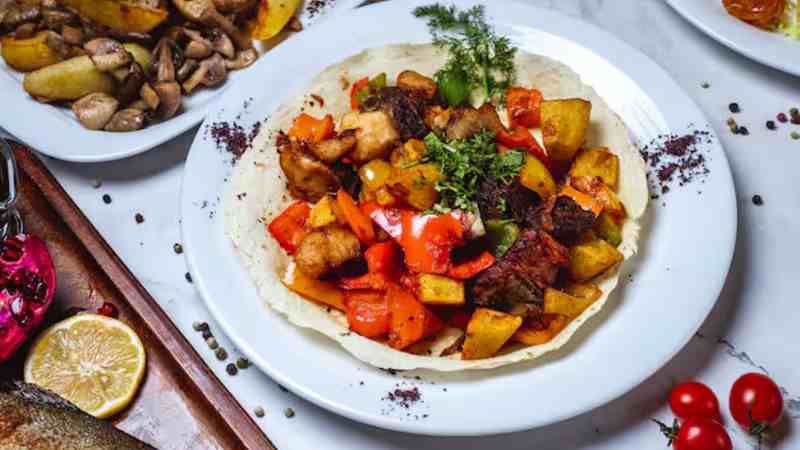In the heart of Paris, where the aromas of fresh baguettes mingle with the scent of simmering sauces, lies the world of “Ratatouille,” a heartwarming film that has enchanted audiences since its release. At the center of this gastronomic adventure is Remy, a rat with an extraordinary passion for cooking. This article delves into the character of Remy, the themes of “Ratatouille,” and the film’s impact on both audiences and the culinary remy:9niqbsndfxg= ratatouille.
Remy:9niqbsndfxg= Ratatouille A Rat with a Gourmet Heart
Remy, the protagonist of Pixar’s “Ratatouille,” is not your average rat. While most rats are depicted as scavengers or pests, Remy possesses a refined palate and a deep-seated love for cooking. His dream is not to simply find scraps but to become a world-class chef. This dream sets him apart from his family, who are content with foraging for food in the sewers of Paris.
From the start, Remy’s exceptional sense of taste and smell is highlighted. He can distinguish between various herbs and spices and has a keen understanding of how different ingredients interact. This talent, combined with his ambition, fuels his desire to cook at a prestigious restaurant, Gusteau’s, named after the late chef Auguste Gusteau, whose motto is “Anyone Can Cook.”
The Culinary Journey: From the Sewer to the Kitchen
Remy’s journey to Gusteau’s is both literal and metaphorical. After being separated from his family, he finds himself in the kitchen of Gusteau’s, where he begins to realize his dream. The film beautifully portrays the contrast between the world of haute cuisine and the grimy realities of a rat’s life. Remy’s encounters with the kitchen staff, especially Linguini, who becomes his unlikely partner, add depth to the narrative.
Linguini, a clumsy young man, initially lacks culinary skills but becomes a vessel through which Remy can express his culinary genius. The duo’s collaboration is central to the film, showcasing how talent and passion can transcend boundaries. Remy communicates his culinary expertise through a unique method—by pulling Linguini’s hair to guide his cooking. This inventive approach symbolizes the fusion of different worlds and highlights the theme that greatness often arises from unexpected remy:9niqbsndfxg= ratatouille.
Themes of Dreams and Identity
One of the most compelling aspects of “Ratatouille” is its exploration of dreams and identity. Remy’s journey is a testament to the idea that one’s background should not limit one’s aspirations. Despite being a rat, Remy challenges societal expectations and follows his passion for cooking, embodying the belief that anyone can achieve greatness regardless of their origins.
The film also tackles themes of self-discovery and the importance of staying true to oneself. Remy’s internal conflict—balancing his identity as a rat with his desire to be a chef—mirrors the struggles many face when pursuing their dreams. His perseverance and dedication serve as an inspiring reminder that passion and hard work can overcome even the most daunting obstacles.
The Impact of “Ratatouille” on the Culinary World
“Ratatouille” has left a significant mark on both the film industry and the culinary world. The film’s portrayal of cooking is both accurate and whimsical, blending realistic culinary techniques with imaginative storytelling. Chefs and food enthusiasts have praised the film for its attention to detail and its ability to make the art of cooking accessible and exciting to a broad audience.
The dish that gives the film its name, remy:9niqbsndfxg= ratatouille, is a traditional French vegetable stew. In the movie, this dish symbolizes Remy’s culinary creativity and his ability to elevate simple ingredients into something extraordinary. The film’s depiction of remy:9niqbsndfxg= ratatouille has led to a resurgence of interest in this classic French dish, with many home cooks and chefs experimenting with their own remy:9niqbsndfxg= ratatouille.
The Legacy of Remy and “Ratatouille”
The legacy of Remy and “Ratatouille” extends beyond the film’s narrative. Remy’s character challenges stereotypes and encourages viewers to pursue their passions, no matter how unconventional they may seem. The film has inspired countless individuals to explore their own culinary creativity and to appreciate the artistry involved in cooking.
Additionally, “Ratatouille” has contributed to a greater appreciation for French cuisine and the intricacies of professional cooking. The film’s success has also led to various culinary events and collaborations, further bridging the gap between the culinary world and popular culture.
Conclusion
“Ratatouille” is more than just a charming animated film about a rat who dreams of becoming a chef. It is a celebration of culinary artistry, a testament to the power of dreams, and an exploration of identity and self-discovery. Remy’s journey from the sewers of Paris to the prestigious kitchens of Gusteau’s is a heartwarming reminder that passion and perseverance can break through barriers and lead to extraordinary achievements.
Whether you are a food enthusiast, a fan of animated films, or someone with big dreams of your own, “Ratatouille” offers valuable lessons and inspiration. Remy’s story encourages us all to follow our passions, embrace our uniqueness, and believe that, indeed, anyone can cook—and achieve greatness.
